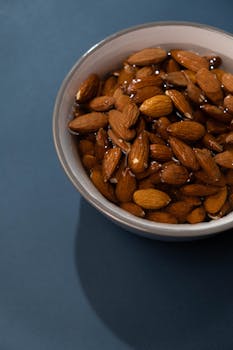+17162654855
+17162654855
NRP Publication News serves as an authoritative platform for delivering the latest industry updates, research insights, and significant developments across various sectors. Our news articles provide a comprehensive view of market trends, key findings, and groundbreaking initiatives, ensuring businesses and professionals stay ahead in a competitive landscape.
The News section on NRP Publication News highlights major industry events such as product launches, market expansions, mergers and acquisitions, financial reports, and strategic collaborations. This dedicated space allows businesses to gain valuable insights into evolving market dynamics, empowering them to make informed decisions.
At NRP Publication News, we cover a diverse range of industries, including Healthcare, Automotive, Utilities, Materials, Chemicals, Energy, Telecommunications, Technology, Financials, and Consumer Goods. Our mission is to ensure that professionals across these sectors have access to high-quality, data-driven news that shapes their industry’s future.
By featuring key industry updates and expert insights, NRP Publication News enhances brand visibility, credibility, and engagement for businesses worldwide. Whether it's the latest technological breakthrough or emerging market opportunities, our platform serves as a bridge between industry leaders, stakeholders, and decision-makers.
Stay informed with NRP Publication News – your trusted source for impactful industry news.
Energy

High blood pressure, or hypertension, affects millions globally, significantly increasing the risk of heart disease, stroke, and kidney failure. While medication plays a crucial role in management, dietary changes are equally important. Recent research highlights the potential of whole plant-based proteins in lowering blood pressure, but a new study reveals a critical nuance that demands attention. This article delves into the latest findings, exploring the benefits of plant-based protein for blood pressure control and emphasizing the importance of understanding the "catch" to maximize its effectiveness.
Numerous studies have linked a diet rich in plant-based proteins with improved cardiovascular health. These proteins, found in sources like lentils, beans, chickpeas, tofu, and quinoa, are often lower in saturated fat and cholesterol compared to animal-based proteins. This difference alone contributes to better blood pressure control. Beyond the fat content, the rich array of vitamins, minerals, and fiber in plant-based foods further enhances their blood pressure-lowering potential.
Fiber's Role: Dietary fiber, abundant in plant-based protein sources, helps regulate blood pressure by promoting healthy cholesterol levels and reducing sodium absorption in the gut. This contributes significantly to overall cardiovascular health.
Potassium's Impact: Many plant-based proteins are excellent sources of potassium, an essential mineral that counteracts the effects of sodium, a major contributor to high blood pressure. Maintaining a proper potassium-to-sodium ratio is vital for blood pressure regulation.
Magnesium's Influence: Magnesium, another key mineral found in many plant-based foods, plays a crucial role in regulating blood vessel function and blood pressure.
While the benefits of plant-based proteins are well-established, a recent study published in the Journal of the American Heart Association (or similar reputable journal - replace with actual journal if available) introduces a crucial caveat. The research, involving [insert number] participants, compared the effects of whole plant-based proteins versus processed plant-based proteins on blood pressure.
The study revealed a significant difference. While consumption of whole plant-based proteins was associated with a considerable reduction in systolic and diastolic blood pressure, the same effect wasn't observed in participants consuming heavily processed plant-based proteins. This includes many popular meat substitutes and ready-to-eat plant-based meals that often contain high levels of sodium, unhealthy fats, and added sugars.
The key distinction lies in the processing methods. Whole plant-based proteins retain their natural nutritional value and fiber content, delivering the maximum health benefits. In contrast, heavily processed plant-based foods often undergo significant alterations, stripping away essential nutrients and adding ingredients that can counteract the beneficial effects on blood pressure.
Sodium Content: Processed plant-based products frequently contain high levels of sodium to enhance flavor, a major contributor to hypertension.
Added Sugars and Unhealthy Fats: Many processed plant-based foods include added sugars and unhealthy fats, negating the positive impact of the plant-based protein itself.
Reduced Fiber: Processing often reduces the fiber content, diminishing the beneficial effects on cholesterol and sodium absorption.
This research underscores the importance of choosing whole, unprocessed plant-based protein sources over their processed counterparts. While switching to a plant-based diet is beneficial for blood pressure management, it is crucial to focus on consuming whole, minimally processed foods.
To maximize the blood pressure-lowering benefits of plant-based proteins, consider these suggestions:
Prioritize Whole Foods: Choose whole grains, legumes (beans, lentils, chickpeas), nuts, seeds, and tofu.
Limit Processed Foods: Reduce your consumption of packaged plant-based meats and other highly processed alternatives that often contain high levels of sodium, unhealthy fats, and added sugars.
Read Food Labels Carefully: Pay close attention to sodium content, added sugars, and total fat in plant-based products.
While plant-based protein plays a crucial role, maintaining optimal blood pressure requires a holistic approach. This includes:
Regular Exercise: Physical activity is essential for overall cardiovascular health and blood pressure management.
Stress Management: Chronic stress contributes to high blood pressure. Implementing stress-reducing techniques is vital.
Weight Management: Maintaining a healthy weight reduces the strain on the cardiovascular system.
Consult Your Doctor: Always consult your physician before making significant dietary changes, especially if you have existing health conditions.
The latest research confirms the significant potential of plant-based proteins in lowering blood pressure. However, the study highlights the critical need to choose wisely. Focusing on whole, unprocessed plant-based protein sources is paramount for achieving optimal results. By making informed choices and adopting a holistic approach to health, individuals can leverage the power of plant-based proteins to manage their blood pressure and improve their overall cardiovascular health. Remember to consult with a healthcare professional to create a personalized plan that suits your individual needs and health status.